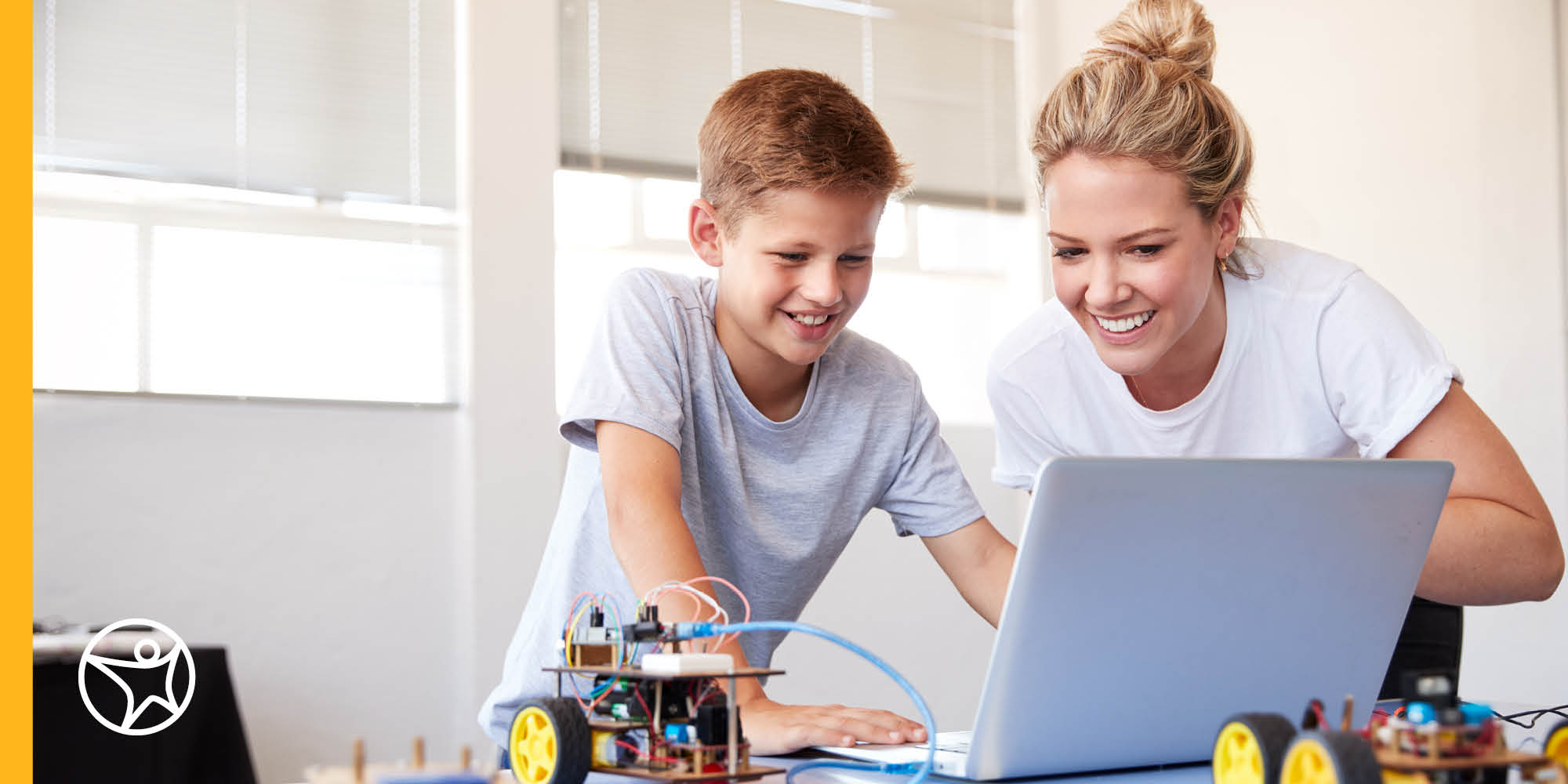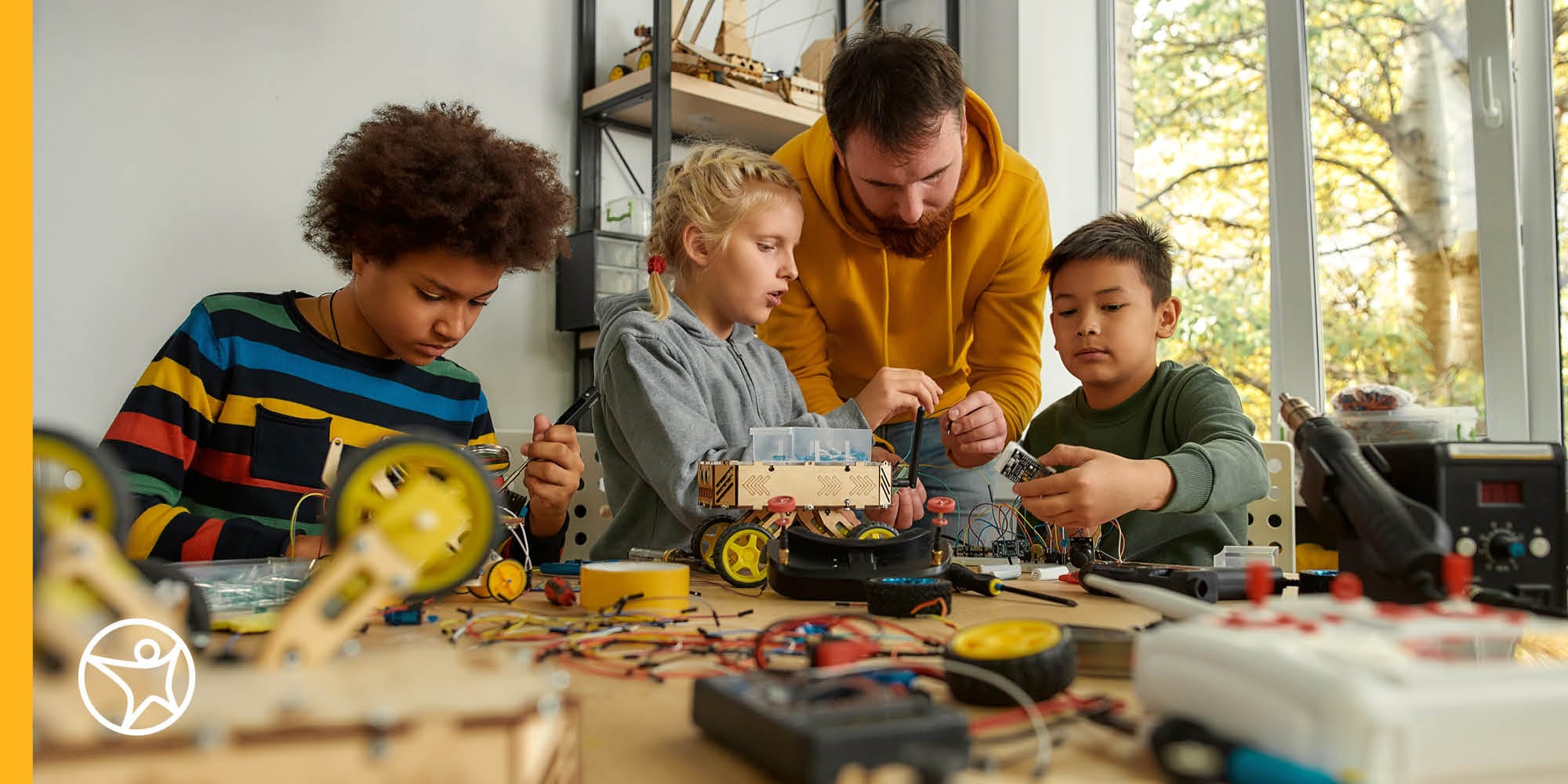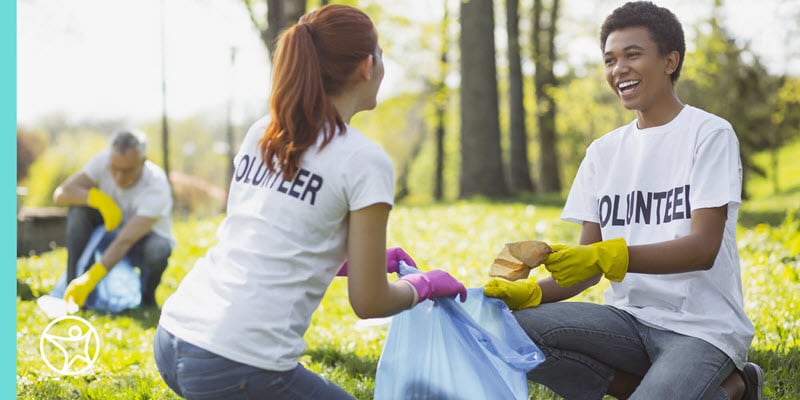Why Building Strong Teacher-Student Relationships Matters
by Valerie Kirk
6 min to read
This article was originally published May 2022 and has been updated.
Most people have fond memories of their favorite teacher. Whether it was someone who sparked an interest in a new subject, created a sense of belonging in the classroom, or listened and showed kindness, people remember the teachers who created a comfortable learning environment and truly made a difference in their lives.
The importance of teacher-student relationships cannot be overstated. Studies have shown that a strong teacher-student relationship leads to higher academic engagement, higher grades, and fewer disruptive behaviors. There are a few ways you can help your student foster a positive, trust-filled relationship with their teachers that can not only set them up for academic success for years to come.
How Positive Teacher-Student Relationships Improve Learning
Students who have a positive relationship with their teacher can feel less stressed during the school day, which can improve a student’s social and emotional development as well as their academic performance. The importance of teacher-student relationships is especially significant for online school students. Building a positive connection between teacher and student helps bridge this gap and helps virtual students feel more connected, involved, and less isolated.
The teacher-student connection starts with teachers caring for their students as individuals. This care has a ripple effect that impacts a child’s learning experience in several ways:
- Increased confidence: Being seen and heard are essential human needs. Teachers who take the time to get to know their students help cultivate a sense of safety, motivation, and trust with their students. With trust, students will have less fear and more confidence to ask for help when they need it and can feel safe to show up as they are.
- Increased engagement: Children who feel supported by their teachers can feel encouraged to take on more difficult challenges and explore new subjects and interests, helping them grow as people and academically.
- Stronger emotional well-being A child who is supported and connected with their teacher and their peers can feel better about themselves and be more resilient.
- Improved grades: Research says students do better academically when they feel secure and comfortable in their learning environment and with their teachers.

The Collaborative Triad: Teachers, Students, and Parents
Connections Academy© knows it takes a village to help a child reach their full potential. In online school, the path to future success is built on collaboration and support between teachers, students, and parents.
- Students: Students contribute by setting personal and academic goals, asking for help with troublesome subjects or assignments, and sharing insight into what is working and not working for them with the adults in their lives.
- Parents: Parents are responsible for advocating for their children when they need it, helping to keep them on track with assignments or objectives, creating a calm and comfortable environment for learning at home, participating in discussions or addressing concerns with teachers, and providing personal guidance, help, or advice when asked.
- Teachers: Teachers work with students to set goals and work out plans for achieving them, check in regularly to adjust expectations as necessary, meet with parents to work through problems, provide resources for support, and help motivate the student.
Of course, collaboration is only as good as the connection between the people involved.
The Teacher’s Role in Fostering Connection
Here are three things to look for in a teacher that signal they are invested in building lasting, supportive connections with their students:
- They get to know their students: Getting to know each student as the unique individual they are goes a long way in developing a positive relationship and building trust. Teachers who know their student loves to play soccer, has a pet dog, likes to ride their bike, or likes to read graphic novels will have more positive interactions with their student because they can make a personal connection about things that matter to them.
- They encourage peer-to-peer interactions: Being connected to classmates in study sessions, extracurricular activities, or after-school clubs will elevate the student’s experience and support their social development. If you need ideas on how to find these for your child, ask your student’s teacher if they have any recommendations for virtual students specifically
- They create a safe learning environment: Being safe in the classroom is extremely important for both students and parents. Whether students attend school online or in a brick-and-mortar school, they need a learning environment where they can express themselves without fear of retaliation or being bullied.
The Student’s Role in Building Relationships
Students should take an active role in their learning, even from a young age. Students can build a connection with teachers by:
- Being prepared: Doing assigned reading or small assignments ahead of time that help lay the groundwork for the next day’s lesson is a great way to signal to the teacher that the student is engaged in the work and is willing to participate.
- Participating in class: Actively participating helps keep the day moving and helps others in the class learn.
- Showing up on time: Showing up on time is supportive and respectful.
- Promoting kindness in class: Students can take care to be kind to peers, support others when they are sharing in class, and provide an example of attentive behavior to support the teacher when a classmate is disruptive.
- Expressing gratitude: A quick “thank you!” can help teachers feel appreciated and motivated and can help close the distance between them as an authority figure versus someone who is helpful and nurturing.
How Online Learning Supports Strong Teacher-Student Relationships
Online schoolteachers are in the unique position of being able to build authentic, lasting relationships with their students more easily:
- More one-on-one time: Online school provides the opportunity for more frequent interactions through meetings, emails, or chats for parents and students alike.
- Frequent feedback and check-ins: Online learning platforms help teachers keep tabs on student progress more easily. They can review their responses in group discussions or provide more detailed feedback on an assignment.
- Personalized education: No two students are alike. Virtual education lets the teacher adapt their lesson plan to their students’ learning styles, helping to create a more personalized and supportive experience that helps them thrive.
Connect With Us
If you would like to learn more about how online school works and how you and your student can form a collaborative team with teachers, join a Connections Academy information session to learn if online school is right for you.



